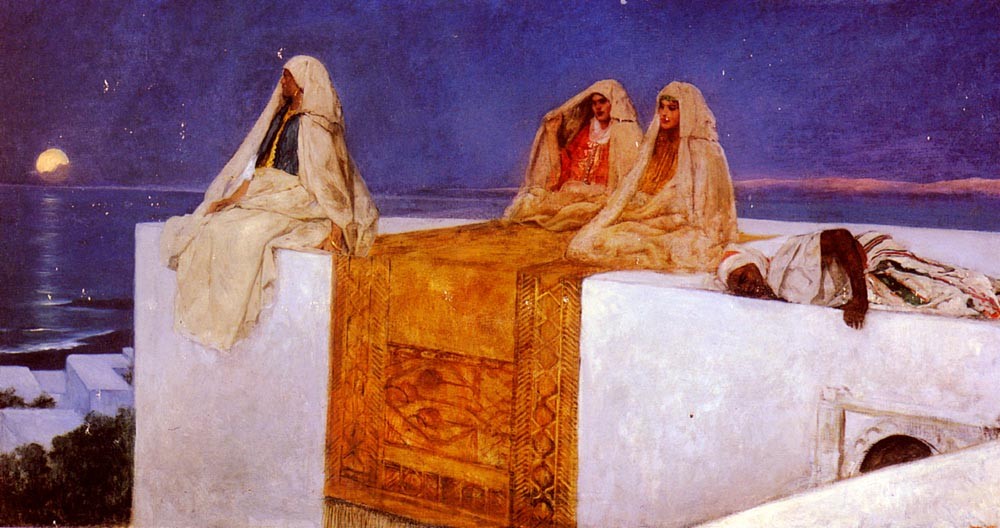One cannot deny that with the evolution of technology over the years, we are now all citizens of a global village. With access to instant communication and international travel, even the most isolated locations can be connected to the rest of the world. We can hear, see and experience the art and music of other cultures instantly. For those who came before us, this was not an option.
In the past, distant lands were seen as exotic and, in most cases, out of reach. It was through music that many were able to explore these distant lands. Mozart was inspired by the Ottoman Empire of Turkey for his opera Abduction from the Seraglio.

Les Nuits arabes / Jean-Joseph Benjamin-Constant (painting) , via Wikimedia Commons
Verdi set Aida in ancient Egypt; even some of the great Russian composers were intrigued by cultures not well-known to them. Rimsky-Korsokov took inspiration from the mystique of the Middle East for his masterful work, Scheherazade. Borodin based his opera Prince Igor, from which we take Polovtsian Dances, on the non-Russian parts of the Russian empire, the Turko-Tatar warriors of the ancient Russian steppes. They could not know if they were correctly emulating the music of those people and times. Instead, they composed what they thought represented those cultures.
Today we see the effects of globalisation not only in the modern classical music being produced, but in the popular music we hear the moment we turn on the radio. With such diversity available, how do artists and musicians pick and choose between styles and genres? What does this mean for the classical music of the future? And does it change the way we view the work of composers who thought they were accurately recreating the musical styles of other cultures?
We invite you to discover more about the impacts of digital technology and music with the Southern Cross Soloists community lecture series. For the second talk in the series hear from Dr Ashley Smith, Southern Cross Soloists' clarinetist and Head of Winds and Contemporary Performance at the University of Western Australia. The Orient and the Occident is on 15 June at State Library of Queensland. This event is presented as a part of the Digital Futures Program.
More Information
/whats-on/calevents/general/talks/sxs-community-lecture-series/the-orient-and-the-occident
Southern Cross Soloists - http://www.southernxsoloists.com/cms/
Digital Futures program – /whats-on/events/digital-futures
Ask Us service - /services/ask-us
Search One Search, SLQ's catalogue for music scores and more - http://onesearch.slq.qld.gov.au/
Gabrielle Knight,
Southern Cross Soloists
Comments
Your email address will not be published.
We welcome relevant, respectful comments.